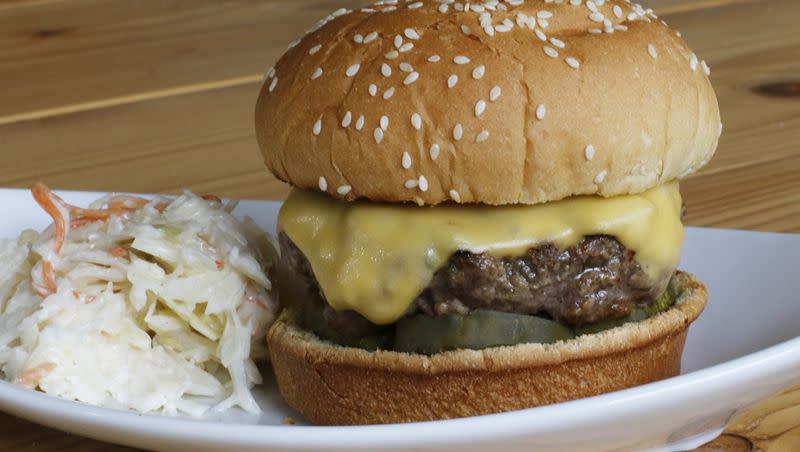Cooking burgers less than well done may lead to E. coli illness, according to new study

According to a recent study by a Finnish government agency, burgers can contain E. coli bacteria when undercooked.
The food safety agency, Ruokavirasto, claimed that beef burgers cooked to internal temperatures less than 140 degrees Fahrenheit risk containing a “Shiga toxin-producing E. coli bacteria” called STEC, per Food & Wine.
The Daily Mail shared that even consuming small amounts of undercooked beef can result in food poisoning, potentially leading to serious illnesses and, in severe cases, death.
What the study found
According to Food Safety News, the agency found that if 12% of all beef patties were cooked medium, with an internal temperature of specifically 131 degrees, there would be 100 connected illnesses per 100,000 people annually.
If all the patties were cooked completely to perfection, only three per 100,000 people would get sick.
The agency suggested the related illnesses would originate from kitchen “cross-contamination,” reported Food & Wine.
Expanding on the data, per Food Safety News, the agency clarified that 178 Finnish people every year would get ill from eating burgers cooked to perfection, as opposed to around 30 times that number (5,370) of sick people from burgers cooked medium.
Were the findings exact to real life?
In reality, the cases were closer to the “perfection” end, as Ruokavirasto claimed less than 300 STEC-related illnesses were reported in 2022, via Food & Wine.
Due to a 2021 E. coli outbreak connected to hamburgers, Finnish authorities, according to Food & Wine, issued alerts to restaurants to warn customers about E. coli and its dangers, even requiring burgers served to children be thoroughly cooked.
Similarly, Norway officials in 2023 detected two burger products as root causes of an E. coli outbreak affecting 15 people, reported Food Safety News.
Related
What experts recommend
Kimon-Andreas Karatzas, an associate professor in food microbiology at the University of Reading, shared to Daily Mail that it’s important to kill off bacteria that can be harmful — even fatal in some cases.
“If you eat rare burgers, there is a much higher chance that any disease-causing bacteria inside will not have been heated up enough sufficiently to kill them, so they can still be alive and may then multiply in your body, making you potentially very sick,” per Daily Mail.
And it’s all due to how ground beef is processed.
Ted Siegel, chef and instructor at the Institute of Culinary Education, explained to Reader’s Digest that when grinding meat, pathogens are dispersing throughout it. So when a burger is undercooked, pathogens still remain.
Karatzas added that while rare-cooked steaks are safer to eat due to them not being cut — thereby resulting in less bacteria — it should not be treated the same as rare-cooked burgers.
The U.S. Department of Agriculture advises to cook any ground beef item, including burgers, to 160 degrees internal via a meat thermometer.
Related

